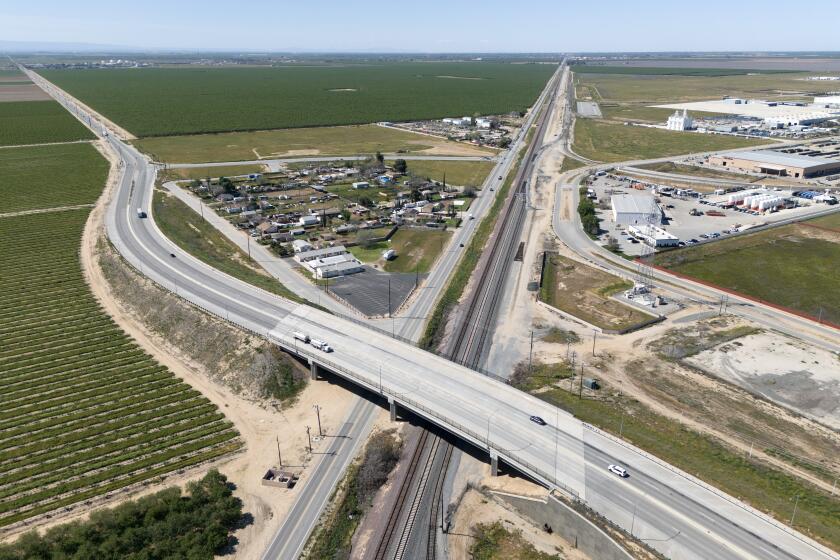Cotton-picking subsidies
A CENTURY AND a half ago, the U.S. cotton industry fueled a booming trade in African slaves and indirectly helped spark the Civil War. One big difference between then and now is that although American cotton is still afflicting Africa, now the Africans suffer at home rather than here.
Cotton is a staple crop for many West and Central African countries, where a difference of a few pennies in the price of a pound of fiber can mean the difference between deprivation and relative prosperity. And an explosion of U.S. cotton exports over the last decade, fueled by one of the most obscene corporate welfare programs this country has ever seen, has increasingly helped tip the scales toward deprivation over there.
On Wednesday, trade ministers from four African countries whose economies are being savaged by U.S. cotton subsidies came to Washington to discuss the issue with U.S. Trade Representative Susan Schwab and Agriculture Secretary Mike Johanns. They left with little more than vague promises. President Bush, cowed by powerful congressional Republicans from farm states, has done nothing to stop a surge in agricultural subsidies during his administration.
Few U.S. growers would be in the cotton business if not for the roughly $3.5 billion the government shovels their way every year. Much of this money goes to large corporate operations or wealthy families that feel it is their birthright to unfairly rig the global trading game. The payments encourage overproduction and make it almost impossible for African farmers to compete with this nation’s subsidized exports.
When other nations try subsidizing industrial exports that compete with our goods, we cry foul, and this incessant hypocrisy contributes to anti-American sentiment in much of the world. The message from Washington to the rest of the world seems to be: We love fair competition and open markets, just as long as we’re talking about those products and services we are inherently good or efficient at producing. This doesn’t just hurt people overseas. The U.S. government last year spent about $23 billion on farm subsidies. What did taxpayers get for their money? A fat agribusiness industry and inflated land values. The overall farm support program also means U.S. consumers lack access to some lower-priced imports.
Two years ago, the World Trade Organization ruled in favor of Brazil in a case challenging the legality of U.S. cotton subsidies, yet the U.S. continues to flout the ruling. A five-year WTO effort to lower farm supports around the world, in order to address one of globalization’s most brazen north-south inequities, collapsed in July. Europe and Japan may be even more culpable on these issues than the United States, but the Bush administration’s unwillingness to unilaterally dismantle the cotton program prevented the U.S. from claiming the moral high ground in negotiations -- not to mention a much-needed dose of goodwill in the developing world.
The crowning irony is that while the United States spends billions of dollars a year on foreign aid programs for developing nations, it spends even more billions on agricultural subsidies that make it harder for these countries to wean themselves off outside support. Enough already. Key farm legislation, which contained a big increase in subsidies in 2002, expires next year. When it is renegotiated, Bush and Congress need to kill off these subsidy programs that cost the nation billions of dollars, and much more in prestige and credibility around the world.






